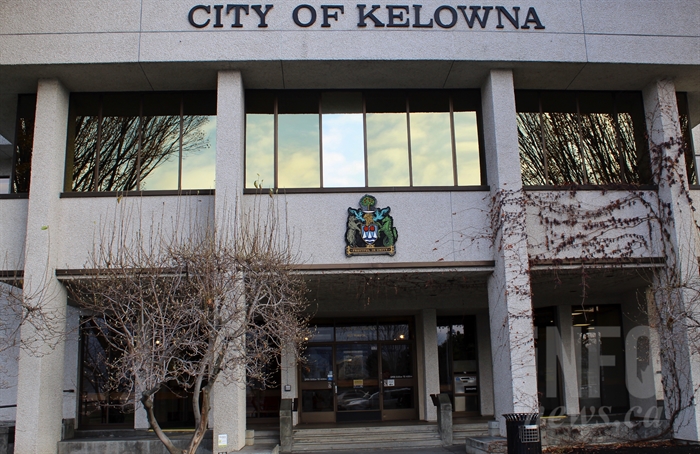Elevate your local knowledge
Sign up for the iNFOnews newsletter today!
Sign up for the iNFOnews newsletter today!
Selecting your primary region ensures you get the stories that matter to you first.

Budgets keep growing at city halls in BC and while some outpace growth, Kelowna and Kamloops appear to be on the right track.
A recent report compiled spending at city halls across the province of the past ten years and described the growth as a “runaway train” of spending.
Though some outpaced both population growth and inflation, Kamloops and Kelowna appeared to stay within limits.
“Metro Vancouver and its constituent municipalities certainly get a failing grade, but we have seen others do slightly better, with Kamloops and Kelowna being two good examples,” said Carson Binda of the Canadian Taxpayers Federation.
He added, however, the two cities aren’t entirely safe from the affordability crunch facing homeowners and residents.
“I still think a lot of business owners and families would welcome tax relief, not tax hikes — even if they’re indexed to population growth,” he said.
The BC Business Council study found Kamloops and Kelowna budgets grew, but they stayed relatively consistent when accounting for population growth and inflation.
iNFOnews.ca compared spending from 2013 to 2024 between Kamloops and the three major Okanagan cities. Adjusted for inflation, Kelowna city hall spent almost $100 less per person last year than it did in 2013.
Kelowna spent $416.5 million last year, roughly around $2,500 per resident. In 2013, it was around $2,600 when adjusted for inflation.
Meanwhile, Kamloops spent around $100 more per person last year, adjusted for inflation. It also works out to around $2,500 each, but the city with 55,000 fewer people saw city hall spend $275 million.
For Penticton, that growth was slightly higher, where it spent nearly $3,800 per resident compared to $3,500.
Vernon saw a steeper increase, but spent less per resident than the other three cities. Last year, Vernon city hall spent $2,176 per resident compared to an inflation-adjusted amount of $1,900 in 2013.
The BC Business Council pointed to a growth in spending outside typical municipal roles, specifically on health care, housing and social services.
It’s an area where cities frequently lament a so-called downloading of responsibility and costs from higher levels of government while faced with growing homelessness and the toxic drug crisis.
It’s also an area Binda said is rife for overspending and questioned whether core services like parks and sewage could see cuts.
“Obviously taxpayers want services that work. We want to make sure our garbage is picked up and our streets are safe, but unfortunately what we’ve seen is a lot of excessive spending in other areas,” Binda said.
Kamloops and Kelowna in particular have both taken on similar costs, like Kelowna’s former Journey Home initiative directed toward services for homelessness.
In Kamloops, the city is exploring creating its own municipal-owned medical clinic, it has beefed up its bylaw department into a cohort of “peace officers” and started a housing-oriented land trust.
“So I think as we’re seeing a decline in fiscal responsibility and financial management from the province, we’re seeing municipalities spending a lot more money not in their areas of expertise,” Binda said. “I think that’s something taxpayers should be keeping an eye on and holding politicians at all levels of government accountable for.”
Whether both can keep their budgets in line with population growth and inflation is yet to be seen, however, as the two cities are on track to take on millions in debt in the coming years.
Several civic projects in Kamloops are poised to see the city take on more than $400 million in debt once they’re built, while Kelowna’s new Parkinson Rec Centre loan is approved for nearly $250 million.
None of those loans will be factored into the city’s budgets until the projects are built.
News from © iNFOnews.ca, . All rights reserved.
This material may not be published, broadcast, rewritten or redistributed.

This site is protected by reCAPTCHA and the Google Privacy Policy and Terms of Service apply.
Want to share your thoughts, add context, or connect with others in your community?
You must be logged in to post a comment.